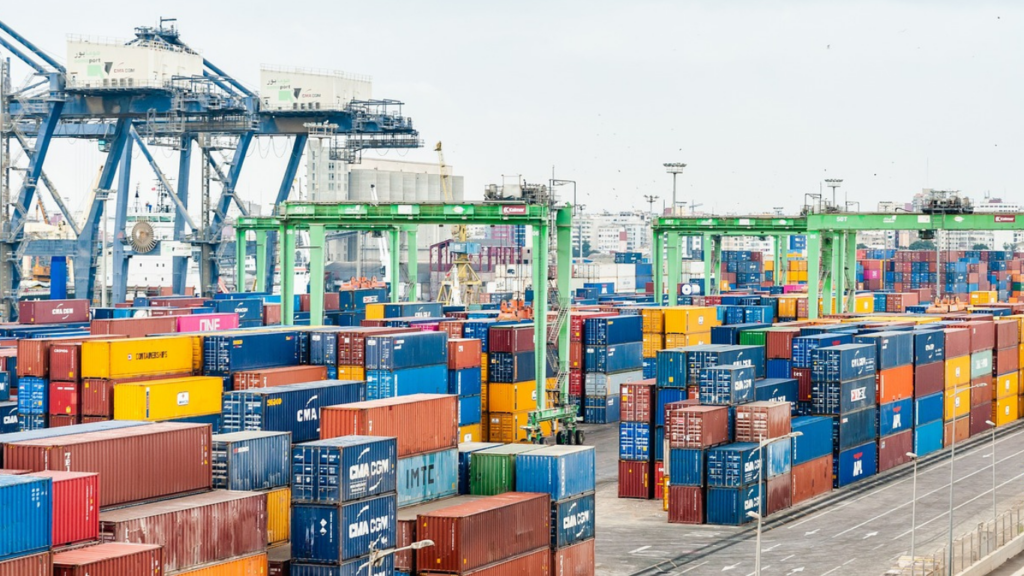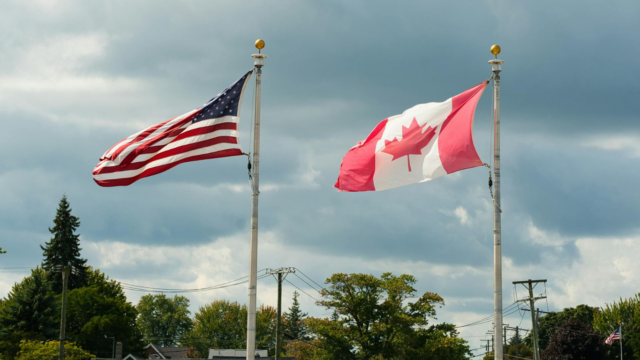Prime Minister Justin Trudeau announced late Saturday that Canada will impose retaliatory tariffs following U.S. President Donald Trump’s decision to implement a 25% tariff on most Canadian goods and a 10% tariff on Canadian energy exports. The measures, set to take effect on February 4, mark a sharp escalation in economic tensions between the two countries.
“We did not want this, but Canada is prepared,” Trudeau said. “The United States has confirmed that it intends to impose 25% tariffs on most Canadian goods, with 10% tariffs on energy, starting February 4. I’ve met with the Premiers and our Cabinet today, and I’ll be speaking with President Sheinbaum of Mexico shortly. Canada will respond in a firm and measured way.”
Trudeau announced that Canada will levy 25% tariffs on $30 billion worth of American goods starting Tuesday, expanding to $125 billion within three weeks. He framed the move as necessary to protect Canadian workers and industries. “We will not allow an attack on our economy to go unanswered,” he said, emphasizing that Canada had long sought to avoid a trade conflict but would defend its economic interests.
Trump’s administration cited the flow of fentanyl and undocumented migration as the justification for the tariffs, though U.S. officials did not provide clear criteria for when the tariffs might be lifted. The executive order claims that Canada has “failed to devote sufficient attention and resources” to curbing fentanyl trafficking, despite Canadian law enforcement’s continued efforts to combat illicit drug activity.
The U.S. trade restrictions represent a major departure from the duty-free agreement established under the United States-Mexico-Canada Agreement (USMCA). Canada and the U.S. exchanged over $700 billion in goods and services in 2023, with Canadian exports to the U.S. totaling $377 billion. Experts warn that the tariffs will increase costs for American consumers and disrupt supply chains, particularly in industries like automotive, agriculture, and energy.
Provincial Leaders Condemn the U.S. Tariffs and Support Retaliation
Ontario Premier Doug Ford called the tariffs an “economic attack” and pledged full support for the federal government’s countermeasures. “I’m extremely disappointed that President Trump has chosen to walk away from a trading relationship that for decades has benefited millions of workers on both sides of the border,” Ford said. “Trump’s tariffs will devastate our economy. They’ll put 450,000 jobs at risk across the province.”
Ford urged the federal government to maximize Canada’s leverage over key U.S. imports, including nickel, critical minerals, energy, and aluminum. “We need to hit back, and hit back hard,” he said. “The federal government must pursue every legal route to challenge these unfair, unjustified, and illegal tariffs.”
Alberta Premier Danielle Smith expressed disappointment over the tariffs but noted that the reduced 10% duty on Canadian energy exports was a partial recognition of Alberta’s advocacy efforts in Washington. However, she warned that increased energy costs would ultimately hurt American consumers.
“The U.S. refines $100 billion worth of Canadian crude into $300 billion worth of finished products every year, supporting tens of thousands of American jobs,” Smith said. “These tariffs will drive up the cost of gasoline, heating oil, and electricity across the United States.”
Smith also called for increased economic self-reliance in Canada. “We can no longer afford to be so heavily dependent on one primary customer,” she said. “Alberta calls on the federal government and our fellow provinces to fast-track pipelines, increase refining capacity, and remove internal trade barriers to strengthen our economy.”
Quebec Premier François Legault condemned the tariffs as an attack on Quebec’s industries and vowed strong countermeasures. “The United States is not just a trading partner; it is our largest customer. This is an economic war, and we must respond decisively,” Legault said.
Legault announced that Quebec will restrict U.S. firms from bidding on government contracts and prioritize local procurement. “Quebecers should make an effort to buy locally to support our businesses and workers,” he added.

Business Leaders Warn of Economic Fallout
The Canadian Federation of Independent Business (CFIB) expressed concern that the tariffs would significantly impact small businesses, many of which are still recovering from pandemic-related economic pressures. “Over half of Canada’s small businesses are involved in cross-border trade,” said CFIB President Dan Kelly. “These tariffs will drive up costs, reduce demand, and force businesses to raise prices on consumers.”
Kelly urged the government to ensure that Canadian retaliatory tariffs are carefully targeted to minimize harm to domestic businesses and consumers. “Government should not keep a dime of the revenue from these tariffs,” he said. “Every dollar must be reinvested into supporting affected workers and businesses.”
The Federation of Canadian Municipalities (FCM) echoed these concerns, warning that local economies and jobs were at risk. FCM President Rebecca Bligh announced that municipal leaders will travel to Washington, D.C., in February to advocate for Canadian interests.
“The federal government must act decisively to protect Canadian jobs and industries,” Bligh said. “Municipalities will play a key role in any economic response strategy.”
The Canadian American Business Council (CABC) urged both governments to find a diplomatic resolution. “The U.S. and Canada share one of the world’s most successful economic partnerships,” said CABC CEO Beth Burke. “Tariffs disrupt supply chains, jeopardize energy security, and threaten jobs on both sides of the border.”
Canadian Steel Producers Association Responds to Tariffs
Catherine Cobden, President and CEO of the Canadian Steel Producers Association (CSPA), expressed deep concern over the impact of the U.S. tariffs on Canada’s steel industry.
“Today’s announcement of 25% tariffs on Canadian products, including steel, entering the United States is deeply disappointing,” Cobden said. “The North American steel industry is highly integrated across the Canadian-U.S. border. With $20 billion in annual steel trade between our nations, these tariffs will cause significant disruption and economic hardship in both Canada and the United States.”
Cobden also pointed out that Canada has taken strong actions to protect the North American steel market from unfair global competition and was surprised by the U.S. decision.
“We are concerned that the tremendous effort Canada has taken to safeguard the North American marketplace from unfair steel trade has gone unnoticed,” she said. “From the enactment of melted and poured requirements to the leveling of tariffs on a wide array of Chinese steel products, Canada has demonstrated its commitment to defending against unfair practices.”
Cobden welcomed the Canadian government’s retaliatory response and called for additional support measures for workers and industries affected by the tariffs.
Uncertainty Ahead as Businesses Brace for Impact
The tariffs are expected to raise costs for American consumers on Canadian-produced goods, including automobile parts, agricultural products, and energy exports. Analysts warn that the U.S. Midwest, which relies heavily on Canadian crude, will see the sharpest fuel price increases.
Before Trump’s announcement, Canadian officials had projected that U.S. gas prices could rise by as much as 75 cents per gallon overnight if the tariffs were imposed. The cost of electricity could also increase, as U.S. states including New York, Michigan, and Minnesota rely on Canadian power exports.
With both countries locked in a trade dispute, businesses and consumers are bracing for economic uncertainty. While Canada has pledged firm retaliatory measures, industry leaders warn that escalation could deepen the economic damage on both sides of the border.
This is a developing story.


































